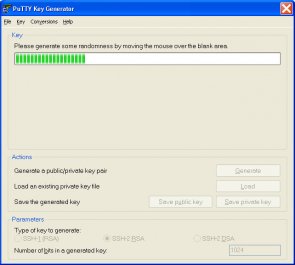SSH, the secure shell, is often used to access remote Linux systems. But its authentication mechanism, where a private local key is paired with a public remote key, is used to secure all kinds of online services, from GitHub and Launchpad to Linux running on Microsoft’s Azure cloud.

Generating these keys from Linux is easy, and thanks to Ubuntu on Windows, you can follow the same process from Windows 10. But even without Ubuntu, SSH keys can also be generated with the free and open source Windows application, PuTTy
Create and add your SSH key pair. It is best practice to use Git over SSH instead of Git over HTTP. In order to use SSH, you will need to: Create an SSH key pair; Add your SSH public key to GitLab. Creating your SSH key pair. Go to your command line. Follow the instructions to generate your SSH key pair. Nov 10, 2011 How to Generate A Public/Private SSH Key Linux By Damien – Posted on Nov 10, 2011 Nov 18, 2011 in Linux If you are using SSH frequently to connect to a remote host, one of the way to secure the connection is to use a public/private SSH key so no password is transmitted over the network and it can prevent against brute force attack.
Over the following few steps, we’ll guide you through the process of generating SSH keys using both Ubuntu on Windows and PuTTY. Key code generator software.
Requirements
All you need is a PC running Windows 10 and either of the following installed:
Generate Ssh Key Windows
- The
puttygen.exeexecutable from PuTTY
Generate Ssh Key File In Windows
If you don’t already have Ubuntu on Windows, take a look at our Install Ubuntu on Windows 10 tutorial.